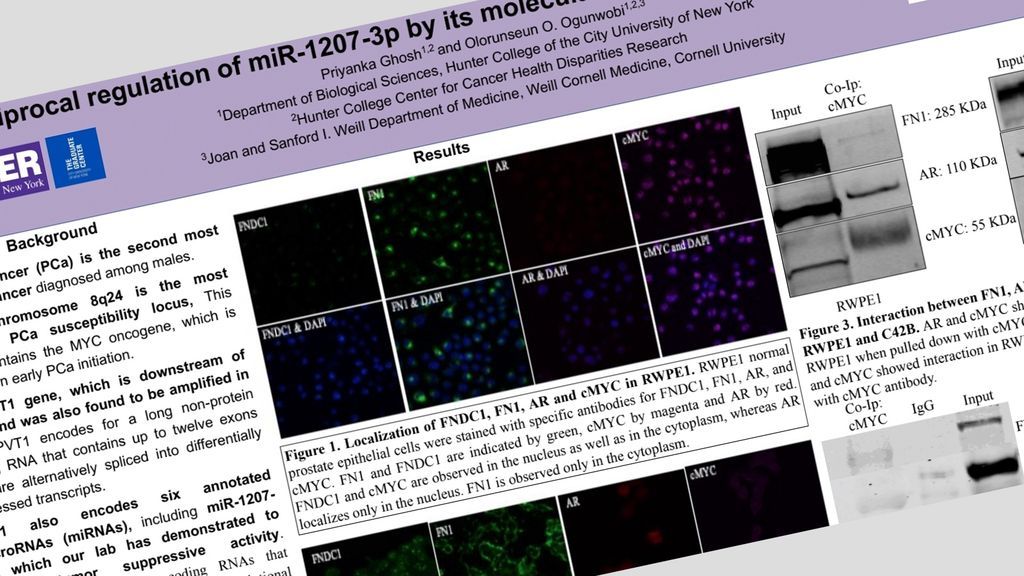
Intracellular Interaction of Downstream Molecular Mediators of miR-1207-3p in Prostate Cancer Cells
| Name | Priyanka Ghosh |
| Institution | Hunter College, City University of New York |
| Research Field | Basic Research |
| Role at Institution | Graduate Student |
| Presenter(s) | Priyanka Ghosh |
